In 2025, productivity is no longer just about checking tasks off a list — it’s about balancing work, personal life, and mental well-being in a world that never slows down. Remote work, digital overload, and constant notifications make it harder than ever to stay focused. That’s where the best productivity apps 2025 come in.
These apps are designed to help you streamline your day, cut distractions, and keep your priorities clear. Whether you’re a student, a busy professional, or simply someone trying to get more out of your day, the right app can transform the way you live and work.
5 Best Productivity Apps 2025 to Organize Your Life
1. Notion – The All-in-One Workspace
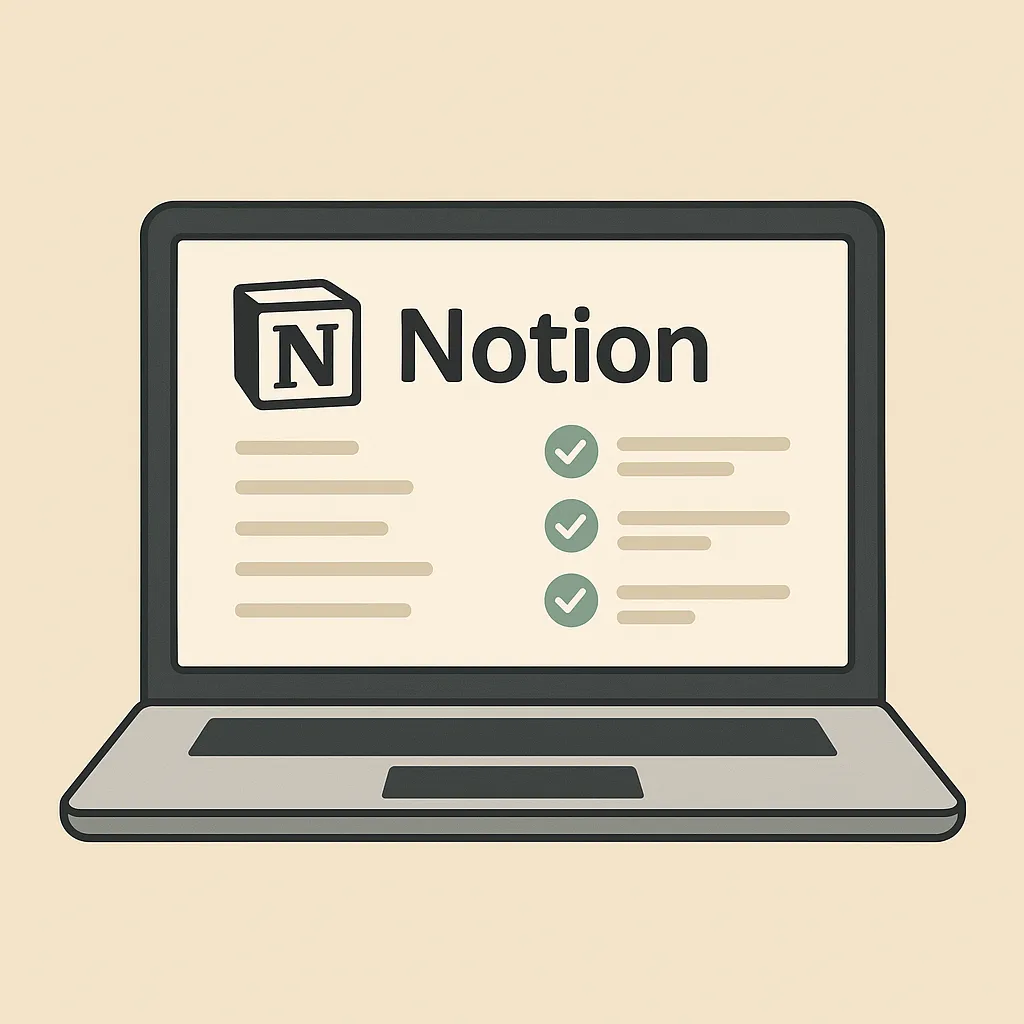
Notion is one of the best productivity apps 2025 because it combines so many tools into one. Instead of juggling separate apps for notes, tasks, and planning, Notion gives you a single workspace that can do it all.
Key Features:
- Customizable pages for notes, projects, or journaling
- Task lists and Kanban boards for team collaboration
- Databases for organizing anything from reading lists to expenses
- Templates for quick setup (students, professionals, startups)
Why it Works: Imagine being a student with multiple classes. With Notion, you can track assignments, lecture notes, and deadlines in one hub. For professionals, it becomes a lightweight project manager without the complexity of enterprise software.
Pros: Extremely flexible, powerful free version, endless templates.
Cons: Can feel overwhelming at first due to steep learning curve.
👉 Perfect for: Students, professionals, freelancers, and creatives who want one flexible tool for everything.
2. Todoist – Simple Task Management
Todoist has been around for years, and in 2025 it remains one of the best productivity apps 2025 for managing to-dos. It’s lightweight, intuitive, and keeps you focused on what matters most.
Key Features:
- Quick task creation using natural language (e.g., “meeting tomorrow at 10am”)
- Color-coded priorities for urgent vs. low-priority tasks
- Recurring reminders for bills, weekly habits, or monthly reports
- Integration with Google Calendar, Slack, and email
Why it Works: A busy parent can set recurring reminders for bills and groceries, while a manager can assign tasks to team members. Todoist adapts to simple or advanced needs.
Pros: Clean interface, natural language input, recurring reminders.
Cons: Advanced features locked behind premium version.
👉 Perfect for: Anyone who wants a stress-free way to manage daily and recurring tasks.
3. Google Calendar – Smarter Scheduling
Google Calendar continues to dominate as one of the best productivity apps 2025 for scheduling and time management. While simple on the surface, it’s incredibly powerful when used consistently.
Key Features:
- Automatic syncing across all devices
- Integration with Gmail for instant meeting invites
- Time-blocking to set aside focus hours
- Color-coded calendars (work, personal, family)
- Shared calendars for teams or households
Why it Works: Professionals can block out “deep work” time, parents can share calendars for school events, and freelancers can organize client calls. It’s a tool that everyone already knows—but few use to its full potential.
Pros: Free, integrates with Gmail & other apps, reliable.
Cons: Basic interface, limited customization compared to competitors.
👉 Perfect for: Busy professionals, families, and anyone who needs reliable scheduling.
4. Evernote – Digital Note-Taking
Evernote has been redesigned in recent years, and it still deserves a spot among the best productivity apps 2025. It remains one of the most powerful tools for capturing and organizing information.
Key Features:
- Rich text notes with images, links, and attachments
- Web clipper to save articles and research instantly
- Tags and folders for easy organization
- Sync across desktop, tablet, and mobile devices
- Search function that can even scan text in images
Why it Works: Writers can draft blog posts on the go, researchers can clip and categorize articles, and anyone can use it as a digital “second brain.”
Pros: Excellent for research, powerful search, syncs across devices.
Cons: Free plan is limited, paid plans can be expensive.
👉 Perfect for: Writers, researchers, lifelong learners, and professionals who need organized note storage.
5. Headspace – Mindfulness for Productivity
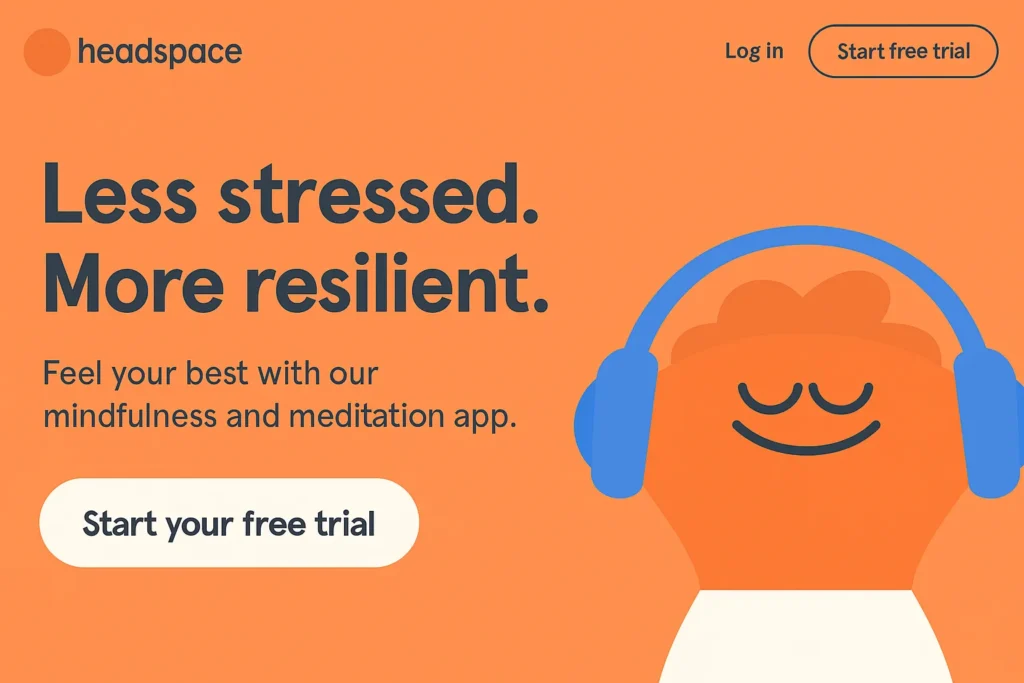
Headspace is unique on this list of the best productivity apps 2025 because it focuses on mental clarity rather than task management. Productivity isn’t only about doing more; it’s also about staying calm and focused.
Key Features:
- Guided meditations for focus, stress, and sleep
- Breathing exercises to quickly reset during the day
- Focus music playlists for deep work sessions
- Mindfulness reminders integrated into your schedule
Why it Works: A doctor or nurse under stress can take 5 minutes to reset, or a student can use focus music while studying. Headspace ensures your mind stays sharp while your schedule stays busy.
Pros: Great for focus and stress relief, user-friendly, good variety of content.
Cons: Subscription required for full library, not task-oriented.
👉 Perfect for: Anyone who wants balance between productivity and mental well-being.
How to Choose the Best Productivity App for You
With so many apps available, you might be wondering: which one should I actually use? Here are a few tips to help you decide:
- Define your goal → Do you want to manage tasks, notes, or stress?
- Start small → Don’t download all 5 at once. Test one or two first.
- Think integration → Does it connect with the apps you already use (Google, Slack, Outlook)?
- Consider pricing → Some apps are free with upgrades (Notion, Todoist), while others are subscription-based (Headspace, Evernote Premium).
- Stick to it → A productivity app only works if you commit to using it consistently.
Bonus App Section (insert before “Final Thoughts”)
6. Trello – Visual Project Management
Trello is another tool that earns its place among the best productivity apps 2025. Unlike text-heavy task managers, Trello uses boards, lists, and cards to give you a clear, visual way to manage projects.
Key Features:
- Drag-and-drop Kanban boards for tasks and projects
- Collaboration features for teams and families
- Automation tools to reduce repetitive work
- Integration with Google Drive, Slack, and hundreds of apps
Why it Works: Trello is perfect for people who think visually. You can use it to manage work projects, organize a family vacation, or even track personal goals like fitness routines.
👉 Perfect for: Teams, visual learners, and people who prefer a board-style overview.
Final Thoughts
The truth is, productivity isn’t about squeezing more into your day. It’s about making space for what matters most. By using the best productivity apps 2025 — from all-in-one workspaces like Notion to mindfulness apps like Headspace — you can design a routine that supports focus, balance, and efficiency.
No single app will change your life overnight. The real power comes from choosing one or two that fit your lifestyle and sticking with them. Start small, test the features, and commit to using them consistently. Within weeks, you’ll notice a difference in how you manage your time and energy.
So, whether you’re looking to finally get ahead of deadlines, reduce stress, or simply reclaim your free time, these apps can help you work smarter — not harder — in 2025 and beyond.
👉 Related: The 50/30/20 Rule Explained: How to Manage Your Salary Smartly
👉 Outbound: PCMag’s Best Productivity Apps

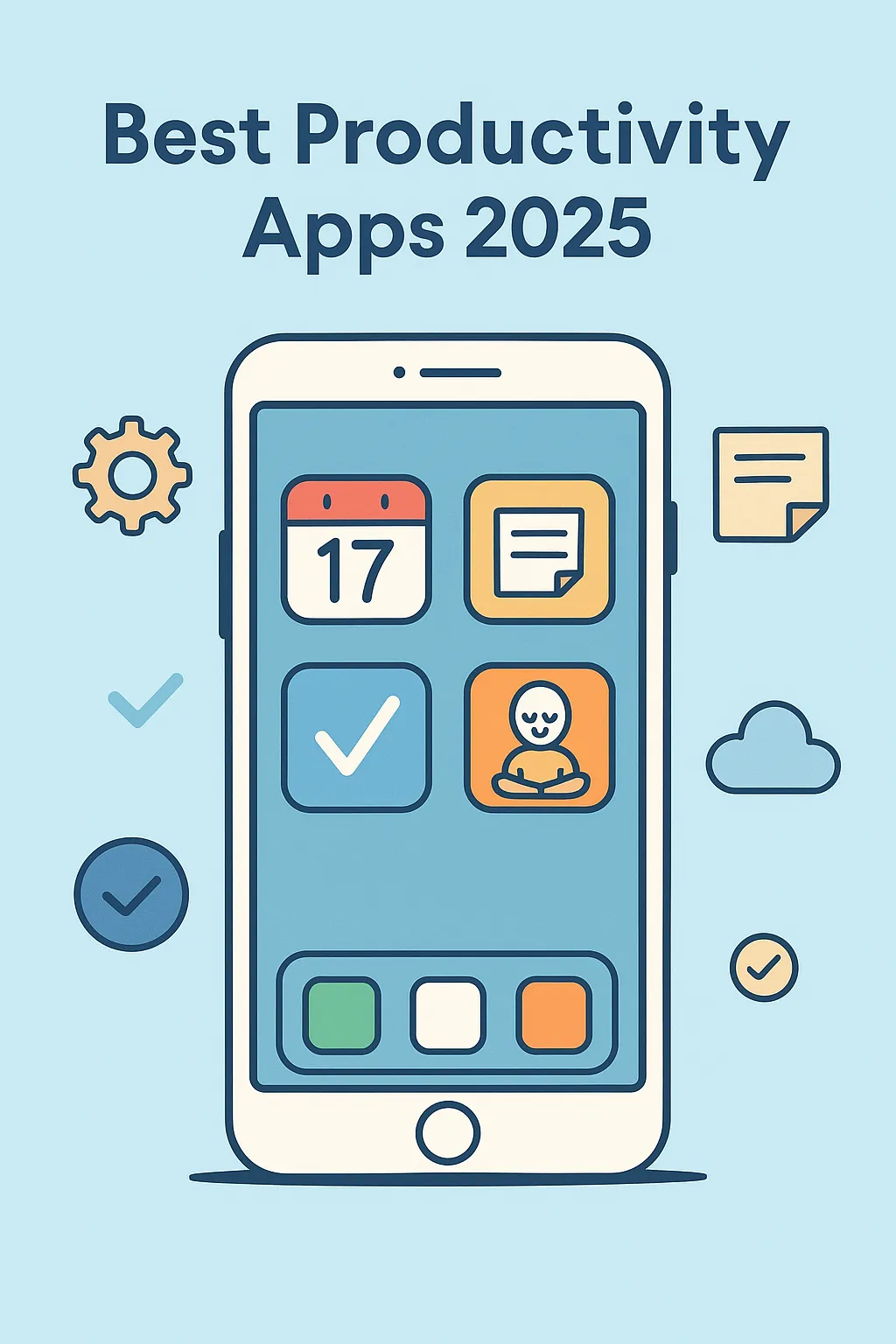

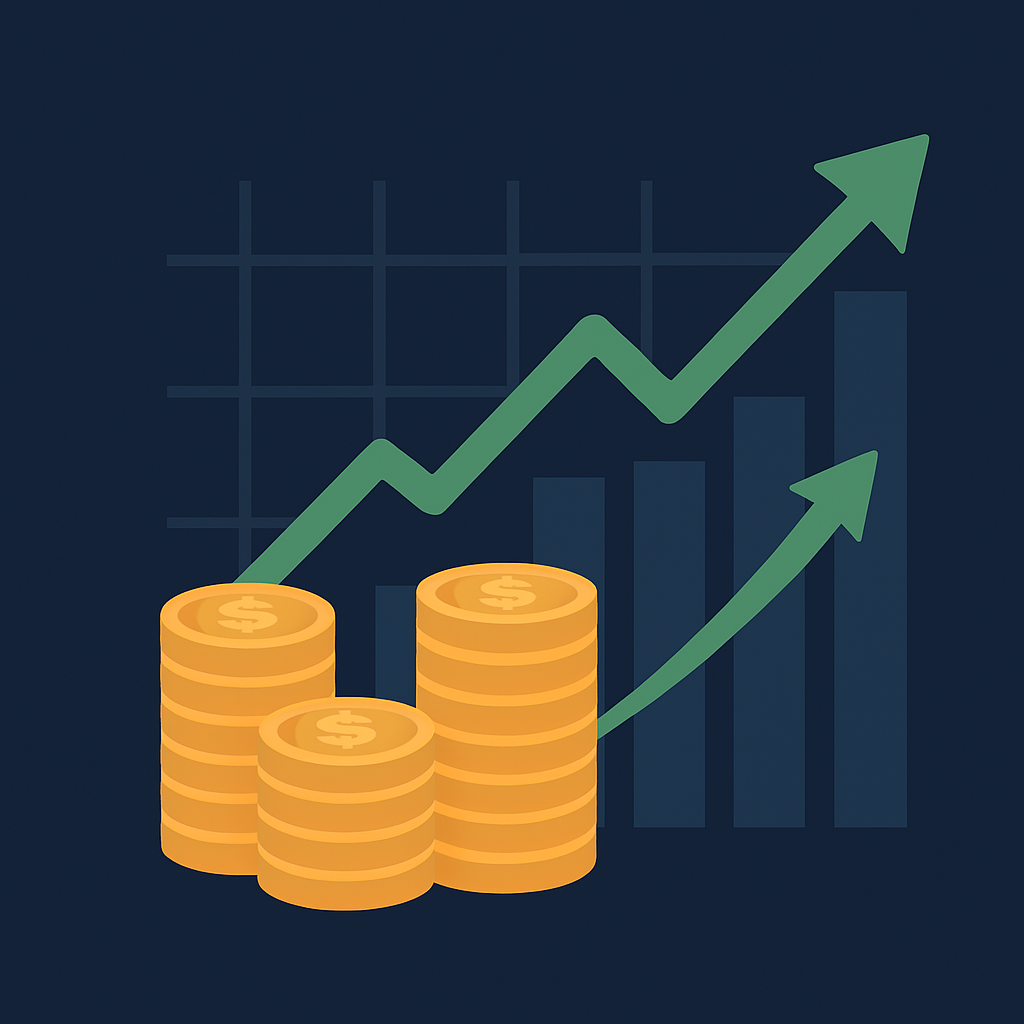
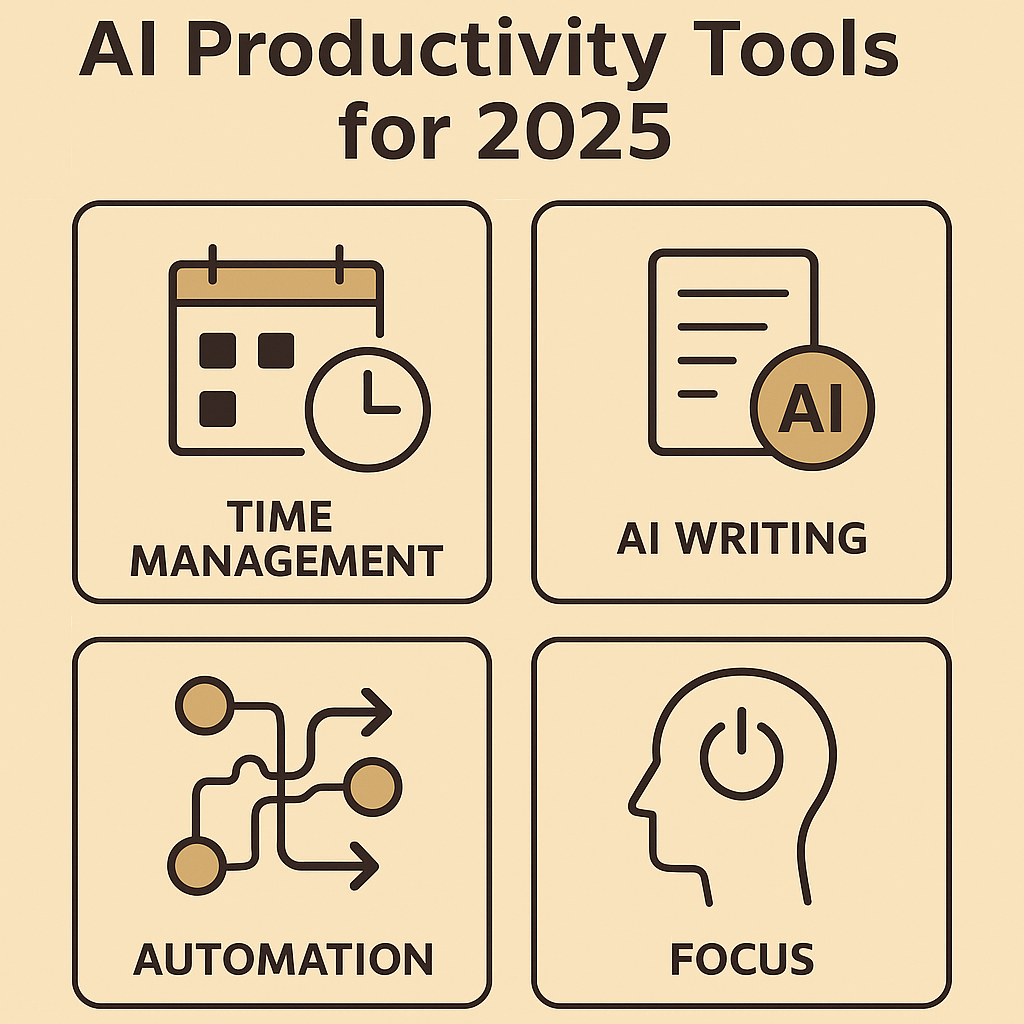
One comment on “5 Best Productivity Apps 2025 | Organize Your Life Smartly”